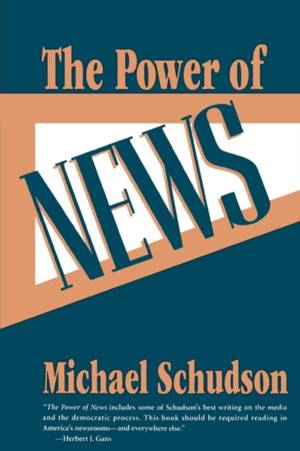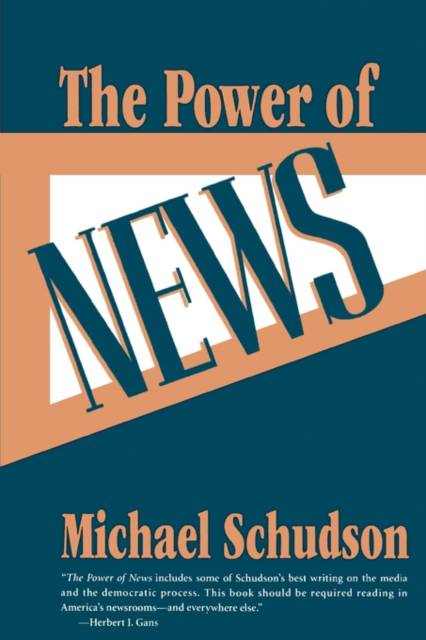
En raison d'une grêve chez bpost, votre commande pourrait être retardée. Vous avez besoin d’un livre rapidement ? Nos magasins vous accueillent à bras ouverts !
- Retrait gratuit dans votre magasin Club
- 7.000.000 titres dans notre catalogue
- Payer en toute sécurité
- Toujours un magasin près de chez vous
En raison de la grêve chez bpost, votre commande pourrait être retardée. Vous avez besoin d’un livre rapidement ? Nos magasins vous accueillent à bras ouverts !
- Retrait gratuit dans votre magasin Club
- 7.000.0000 titres dans notre catalogue
- Payer en toute sécurité
- Toujours un magasin près de chez vous
Description
Some say it's simply information, mirroring the world. Others believe it's propaganda, promoting a partisan view. But news, Michael Schudson tells us, is really both and neither; it is a form of culture, complete with its own literary and social conventions and powerful in ways far more subtle and complex than its many critics might suspect. A penetrating look into this culture, The Power of News offers a compelling view of the news media's emergence as a central institution of modern society, a key repository of common knowledge and cultural authority.
One of our foremost writers on journalism and mass communication, Schudson shows us the news evolving in concert with American democracy and industry, subject to the social forces that shape the culture at large. He excavates the origins of contemporary journalistic practices, including the interview, the summary lead, the preoccupation with the presidency, and the ironic and detached stance of the reporter toward the political world. His book explodes certain myths perpetuated by both journalists and critics. The press, for instance, did not bring about the Spanish-American War or bring down Richard Nixon; TV did not decide the Kennedy-Nixon debates or turn the public against the Vietnam War. Then what does the news do? True to their calling, the media mediate, as Schudson demonstrates. He analyzes how the news, by making knowledge public, actually changes the character of knowledge and allows people to act on that knowledge in new and significant ways. He brings to bear a wealth of historical scholarship and a keen sense for the apt questions about the production, meaning, and reception of news today.Spécifications
Parties prenantes
- Auteur(s) :
- Editeur:
Contenu
- Nombre de pages :
- 288
- Langue:
- Anglais
Caractéristiques
- EAN:
- 9780674695870
- Date de parution :
- 01-09-96
- Format:
- Livre broché
- Format numérique:
- Trade paperback (VS)
- Dimensions :
- 156 mm x 235 mm
- Poids :
- 403 g

Les avis
Nous publions uniquement les avis qui respectent les conditions requises. Consultez nos conditions pour les avis.






